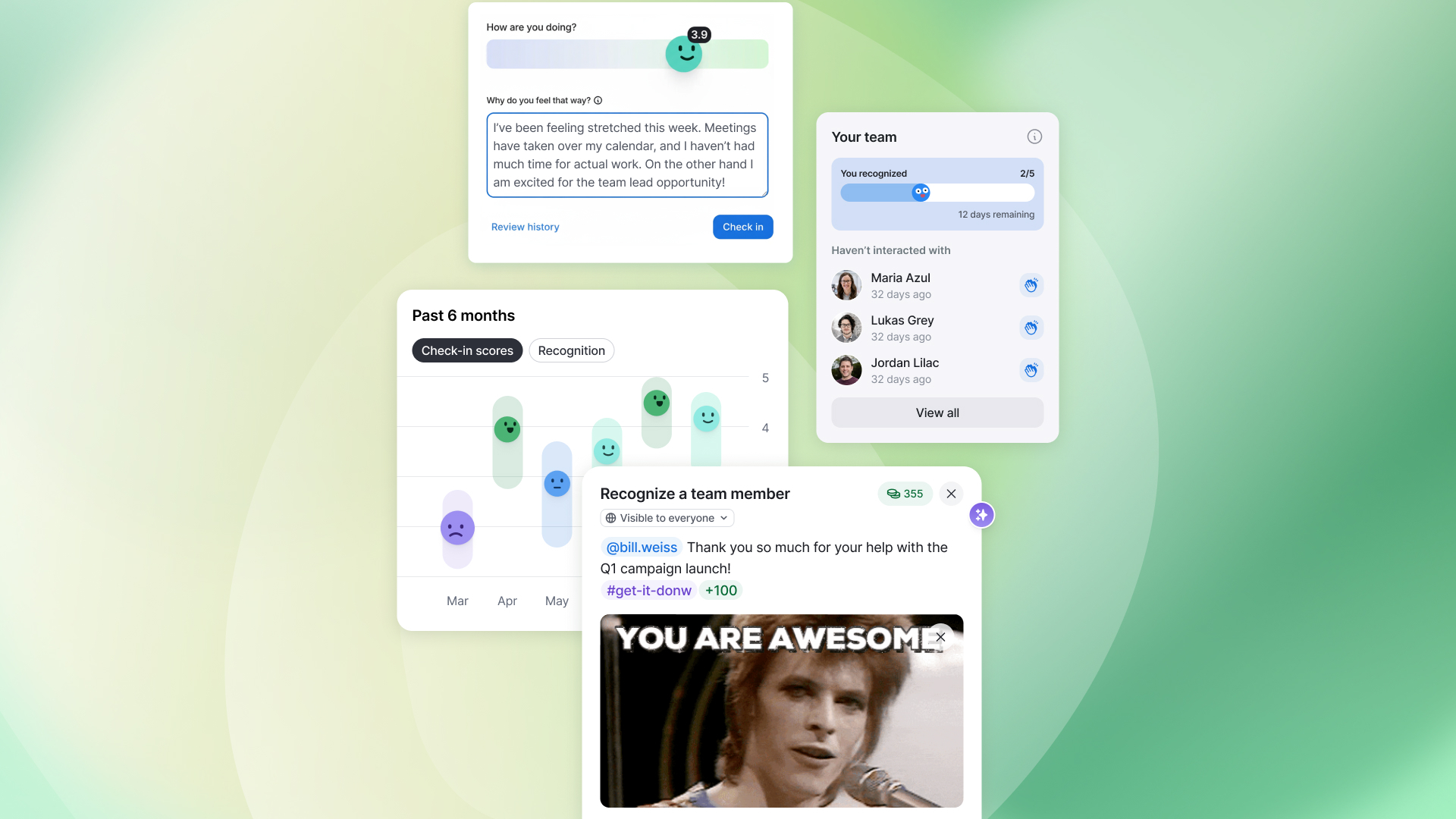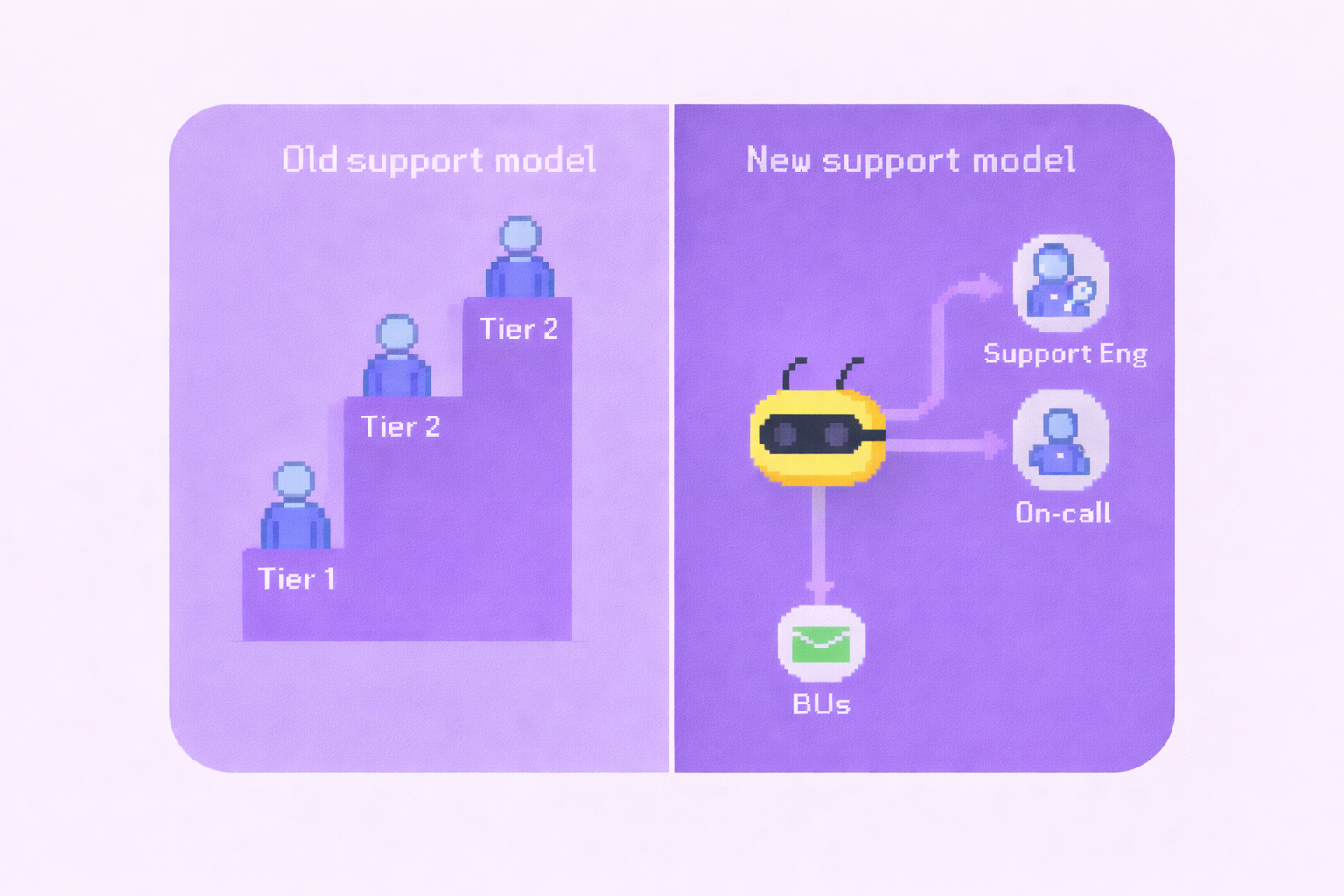Receiving a Performance Review

Going into performance reviews can be stressful. What will your manager say? Are you lagging behind your coworkers?
Fortunately, if you think of feedback as a gift, performance review season is like work Christmas!
Rather than worrying about being called out as an imposter, take the feedback that your manager and peers have neatly packaged for you and fully embrace the opportunity for a growing moment. Here are some ways to make the most of the performance review process:
Hear the good
Performance reviews often start with a description of your strengths and recognition for the ways you had impact, followed by constructive feedback. If you’re like me (or many of the people I know), you’ll give the strengths and recognition part a passing glance, and dwell mostly on the criticism.

We humans are wired to see the bad more clearly than the good. I mean, it’s an evolutionary advantage! When you’re surveying the landscape as an ancient human, do you want to be exceptionally good at noticing everything that’s good and normal—deer grazing, tree branches swaying, the sun shining—or do you want to excel at spotting the hungry lion in the shadows?
Thankfully, most corporate environments don’t have carnivorous beasts to deal with, and so we need to reset our instincts as well. Give as much attention to the positive points as you do to the problem areas. The recognition for things you’re doing well well are guideposts to where you can double down to have even greater impact.
For example, if you were appreciated for helping to ramp up other new hires, consider how you can further formalize your role as a mentor or systematize your support into improved documentation or scheduled meet-ups with new hires. Or if you were praised for the attention to detail you paid when a new feature was being rolled out, consider doing even more there—manage the launches going forward, or create a new process for other teams to launch products successfully.
In general, there are two ways to improve: Correcting for your weaknesses, and further emphasizing your strengths. If you neglect the latter, you’re missing out on what often are bigger (and more enjoyable!) ways to have impact.
Recognize patterns and over-correct for them
Unless this is the first time you’ve ever received a performance review, you’re likely to hear some constructive feedback you’ve heard before. Year after year, I got similar feedback from my manager. And year after year, I gave similar feedback.
It wasn’t that I or my colleagues didn’t hear or agree with the feedback. Rather, we were trying, but changing our habits and defaults is hard! A lot of the feedback seemed like it was getting at the heart of who we were (for example, an introvert getting feedback that she should speak up more.) So even when it felt like I was making a big change in my actions, it often came across to my colleagues as not much of a change.
I’m a big fan of my colleague Mark Rabkin’s article, Make the Other Mistake, where he describes this phenomenon and how you’ll likely need to over-correct for these persistent traits if you hope to make progress to where you ultimately want to be.

Perhaps you’re too quiet in meetings and aren’t expressing your opinions. Set a goal for yourself to say three things in every meeting you’re in. It may feel to you like you’re going overboard and talking too much, chiming in with input when nobody asked you to speak, but it’s more likely this fear is all in your head and you actually do have valuable things to contribute. And, only through the experience of speaking up more will you grow more comfortable with engaging in the discussion.
Maybe your issue is that you aren’t sharing out your learnings enough with the broader team, and are viewed as being too insular or opaque. Set a goal that you will share out broadly once a week, every week. Overcome the fear that you’re oversharing mundane details or that you should only share when you have some big news or brilliant insight. Set a deadline and hit send. You’ll get better at writing these updates, and you can seek feedback to understand how to craft them to be more valuable.
Save your performance summaries from previous cycles, check for patterns in the feedback, and see if there are patterns that warrant extra attention to address.
Tell your manager what you want your next performance review to be
A lot of times, performance reviews can feel like a moment of judgement. It’s like, “Did I pass the test? Did I get an A?” And once you get your feedback, you breathe a sigh of relief, the moment is over, and it feels like you can move on. That’s how I used to feel about performance reviews, but over the years I’ve learned that the most valuable part isn’t the assessment or even the written review itself, but the conversation about the future. These days, a really good performance review to me is one in which I have a deep and honest conversation with my manager, where I feel like he or she understands what I care about at the deepest level—which includes understanding my dreams, my fears and my vulnerabilities—and is committed to helping me to reach my aspirations.
It can be hard to admit what it is you really want, whether it’s influence, a great reputation, opportunities to lead, recognition, etc. It can feel selfish to talk about, and scary too because the person who knows your dreams also knows your fears—that maybe you’ll fail. That maybe you aren’t good enough. If you don’t have a friendly and trusting relationship with your manager to begin with, it’s even harder to feel like you can open up.

But the best thing I’ve done for my career is get to having that level of candor and conversation with my manager, where I can say “this is what I hope to accomplish in the next half. I don’t know if I can do it, and I want your help.” By giving words to my aspirations, my manager can help me work through a concrete plan to get there. And as a manager, I love nothing more than understanding what my reports truly care about, and what keeps them up at night. Beyond helping us connect more deeply as humans, it gives me a clearer picture of how I can best support my team members.
One tactic to try is to visualize your next performance review. Walk through it in your head. How do you hope it will go? What do you hope your peers and manager say? I love this exercise because it helps create a crystal-clear picture of a concrete outcome to shoot for. And once this is clear to you, tell your manager. Engage their help in putting together a plan, with milestones and goals and checkins. Keep talking about it throughout the next half, so that when you get to your next performance review, it’ll go exactly how you expect.
Good luck, and happy perf review season!
This article republished with permission, and it first appeared in a Q&A format on Julie Zhuo’s mailing list, The Looking Glass.
Want to learn more about performance management? Check out our guide here:







